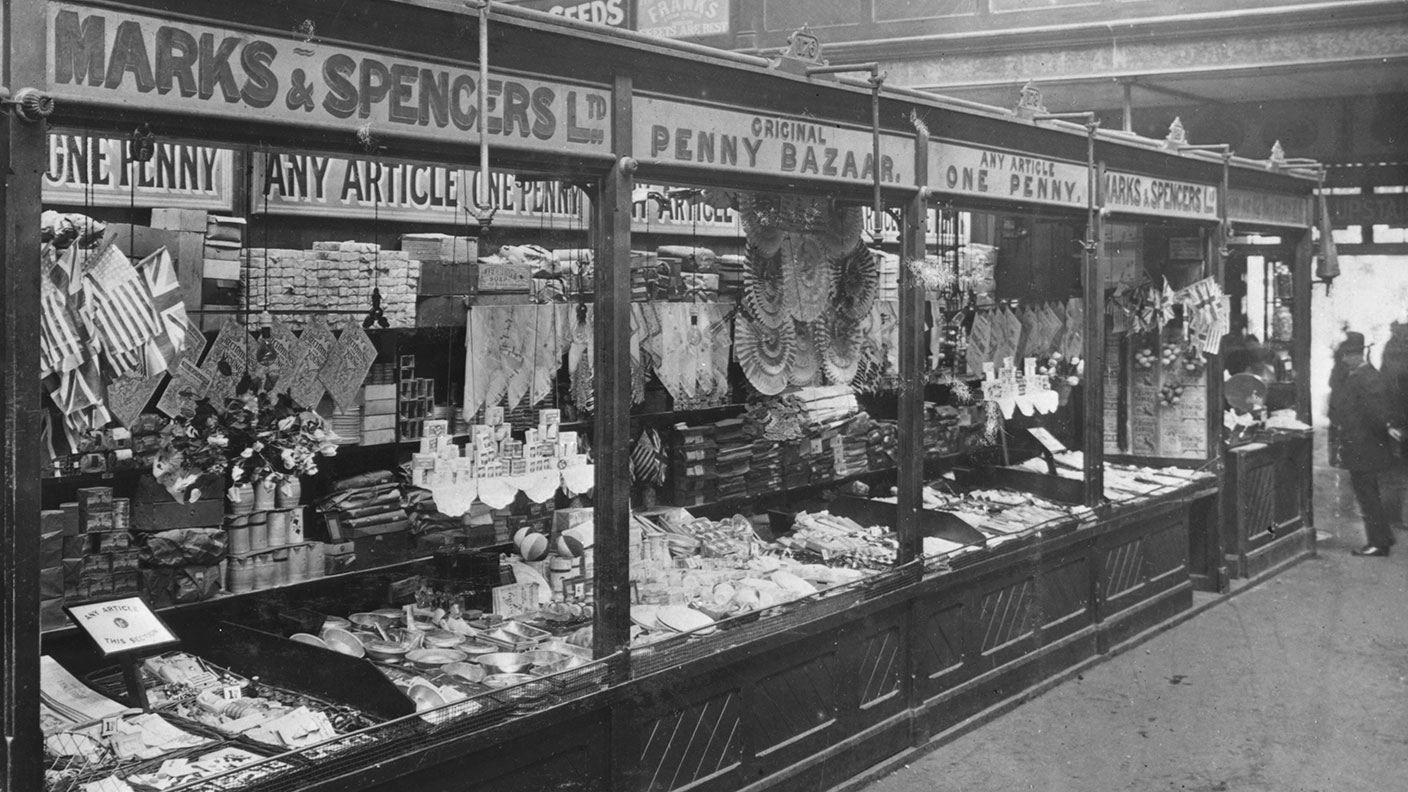
Get the latest financial news, insights and expert analysis from our award-winning MoneyWeek team, to help you understand what really matters when it comes to your finances.
You are now subscribed
Your newsletter sign-up was successful
Want to add more newsletters?

Twice daily
MoneyWeek
Get the latest financial news, insights and expert analysis from our award-winning MoneyWeek team, to help you understand what really matters when it comes to your finances.

Four times a week
Look After My Bills
Sign up to our free money-saving newsletter, filled with the latest news and expert advice to help you find the best tips and deals for managing your bills. Start saving today!
With a reputation for good quality, if occasionally slightly dull, merchandise, and as the grocer to Britain's middle classes (alongside Waitrose), it's perhaps a little surprising to find out that solid, dependable Marks & Spencer started out life as the 19th-century equivalent of a pound shop in the north of England.
Michael Marks was a refugee from eastern Europe. Originally from Slonim in Belarus, he made his way to Leeds, where he set up a stall in Kirkgate Market.
With business going well, he took on a partner, Tom Spencer, who invested £300 into the business. And on 28 September 1894, the first "Marks & Spencer Penny Bazaar" was born. The stall sold household goods and haberdashery, and, as the name suggested, everything cost one penny.
MoneyWeek
Subscribe to MoneyWeek today and get your first six magazine issues absolutely FREE

Sign up to Money Morning
Don't miss the latest investment and personal finances news, market analysis, plus money-saving tips with our free twice-daily newsletter
Don't miss the latest investment and personal finances news, market analysis, plus money-saving tips with our free twice-daily newsletter
The business expanded quickly, so that by 1900, Marks & Spencer boasted 36 market stalls and 12 high-street shops.
In the 1920s, M&S changed direction to begin selling clothes, and built up a formidable reputation for selling quality pants and bras. It also changed its pricing policy – goods could now cost anything up to five shillings.
Marks & Spencer built a business selling goods that were exclusively from British suppliers. The brand, "St Michael", was named in honour of its founder, Michael Marks. However, commercial pressures meant that by the 1990s the British-only policy was quietly abandoned.
The company continued to expand right up until the end of the 20th century. Profits peaked in 1997-1998. But it has struggled to keep pace with both quickly changing fashions and the rise of nimbler competition. It was demoted from the FTSE 100 in September 2019, but it remains a retail bellwether, with a market capitalisation of £2bn.
Get the latest financial news, insights and expert analysis from our award-winning MoneyWeek team, to help you understand what really matters when it comes to your finances.

-
 Average UK house price reaches £300,000 for first time, Halifax says
Average UK house price reaches £300,000 for first time, Halifax saysWhile the average house price has topped £300k, regional disparities still remain, Halifax finds.
-
 Barings Emerging Europe trust bounces back from Russia woes
Barings Emerging Europe trust bounces back from Russia woesBarings Emerging Europe trust has added the Middle East and Africa to its mandate, delivering a strong recovery, says Max King
